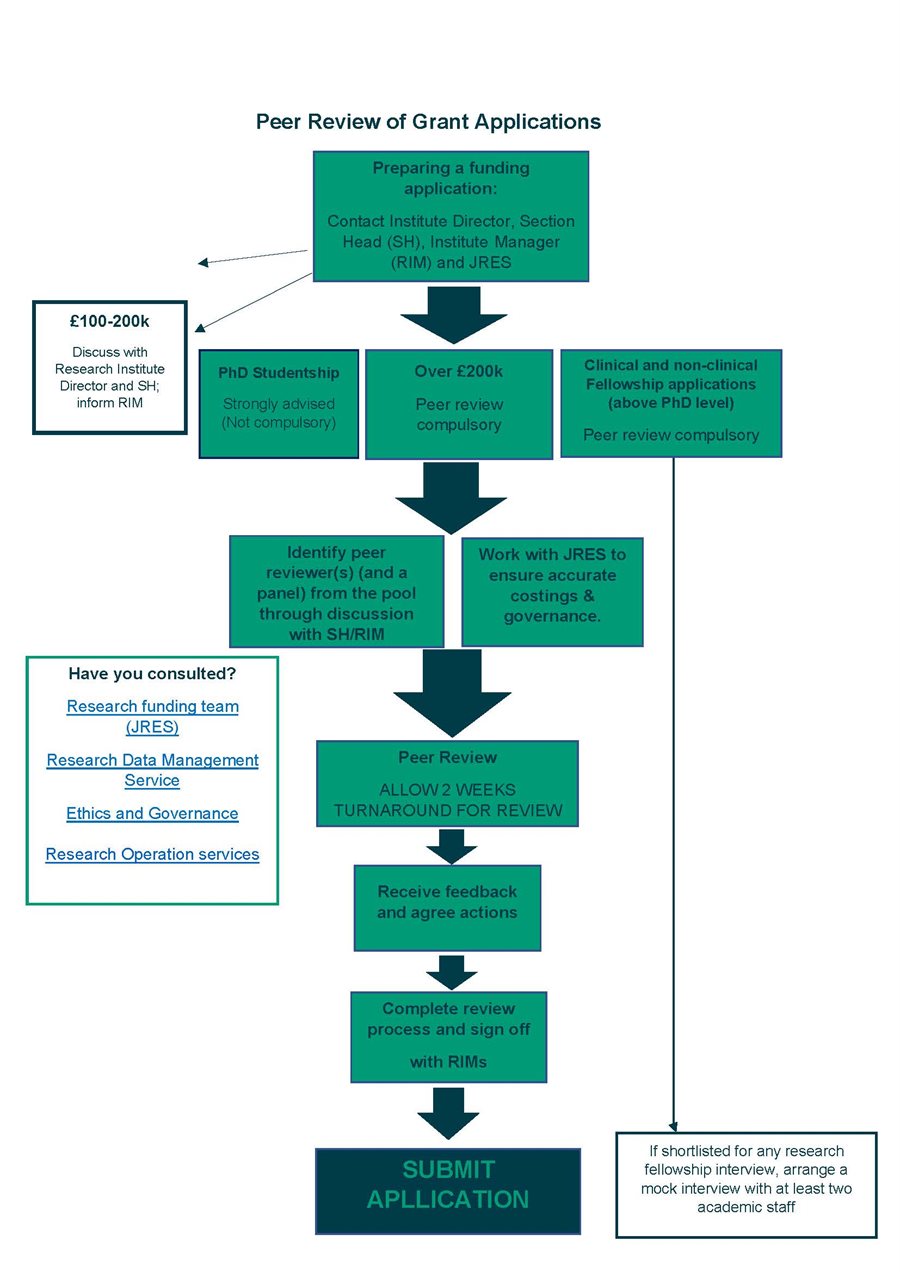Grants under £100k: No university arranged peer review is required and any such review is individual choice.
Grants £100k-£200k: Discuss with Research Institute Director (ID) who will decide whether peer review is required (e.g., for new lecturers, or those staff who have had multiple applications rejected). At the same time inform the Section Head (SH) and Research Institute Manager (RIM).
Grants over £200k: Peer review is compulsory and grant submission will not be allowed without this step:
- Selection of a peer reviewer will be coordinated by the Research Institute Manager and Director:
- The reviewer(s) must have experience of recent successful grant writing or experience of a major grant panel within the last five years
- The reviewer(s) must not be a co-applicant or collaborator on the proposal
- The reviewer(s) do not have to be located in the same Research Institute as the applicant.
- An external peer reviewer may be selected but this approach should be discussed with the Institute Director and must not involve a current or recent (within three years) collaborator
- Following peer review feedback, the applicant must show changes made to the grant proposal to the reviewer and justify if not all suggestions have been adopted to the original peer reviewer; meeting in person or by teams with the peer reviewer is encouraged
- Once peer review is completed, the relevant RIM must be informed for sign off to ensure all stages are complete
- In addition, open peer review with an appropriate panel may be arranged at the discretion of Institute Director, but this step is an addition to the above process and not an alternative to individual peer review.
Once a year RIMs will audit all large grant applications to confirm that they have undergone the appropriate peer review process and monitor the success rates of peer-reviewed applications. Exceptions:
- Please note this process does not apply to externally led grant applications.
- Peer review exceptions may be made for unexpected grant calls, with a rapid response at the Institute Director's discretion.
All clinical and non-clinical Fellowship applications above the level of PhD must be peer reviewed prior to the submission.
If a fellowships candidate is short-listed for external interview, in all such cases candidates (including for PhDs) must have a mock interview with at least two academic staff on the panel. Candidate should contact the relevant RIM, Institute Director, and Section Head to coordinate this process.
Peer review of applications for PhD studentships (clinical and non-clinical) is strongly advised but is not compulsory unless last three applications by supervisor have been rejected.
In such cases, peer review is compulsory. See previous tab for interview practice.

See a larger version of this flowchart by clicking the image.